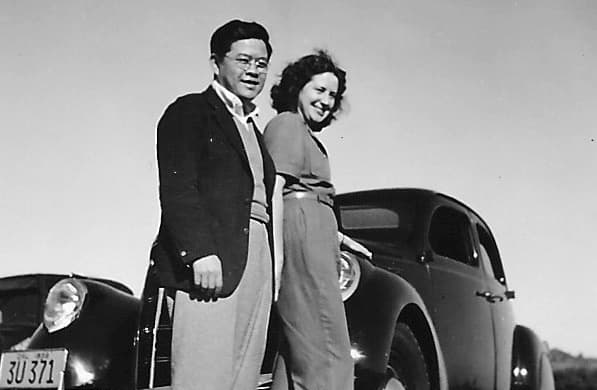Giving Sanora Babb Her Due
Iris Jamahl Dunkle’s biography is not merely a kind of restitution but a thrilling recovery of Babb and the world she portrayed so convincingly in her novels, stories, and poetry.

‘Riding Like the Wind: The Life of Sanora Babb’
By Iris Jamahl Dunkle
University of California Press, 398 Pages
John Steinbeck was having a hard time writing his novel about the so-called Okies, who had traveled to California from Dust Bowl Oklahoma, were maltreated by the big growers who hired them, and were persecuted by the state that regarded them as subhuman.
Steinbeck had torn up a couple of drafts and didn’t even have a good title. Then two women came to the rescue. While spending a few weeks in a migrant camp, he was given Sanora Babb’s field notes. She was working on her own Dust Bowl novel, “Whose Names are Unknown.” Steinbeck’s wife, Carol, came up with the title that just seemed to put everything in the right perspective: “The Grapes of Wrath.”
Babb wrote powerfully about not just poor Oklahomans but a cross-section of America, including African Americans, who had been displaced by the climate shift disasters of the 1930s. She had grown up in Oklahoma and Colorado, sometimes in poverty, sometimes close to starvation that damaged her heart. She had been informally adopted by Native Americans who saw that her gambler-father and her abused mother were having trouble raising their two daughters.
As Iris Jamahl Dunkle documents in her moving biography, Babb never seemed to get her due. In high school, Babb was not named valedictorian because a prominent community member decided she did not like the idea of a gambler’s daughter getting such recognition. Babb persisted, encouraged by a local newspaper editor and driven by her own determination to leave for California to pursue her dream of becoming a writer.
Babb was so fixated on her goal that even when a powerful film producer, Irving Thalberg, attracted by her beauty and presence of mind, offered her a movie contract, she was not impressed. She did take a screen test (a shot from it is included in Ms. Dunkle’s book) but did not pursue a Hollywood career.
Bent on producing a great Dust Bowl novel, Babb caught the attention of the publisher of Random House, Bennett Cerf, who signed her to a contract. She labored slowly at her novel, wishing to get it right while having to take care of a troubled sister. Random House published “The Grapes of Wrath” to great acclaim and popularity. Cerf canceled Babb’s contract, and Babb discovered he was right to do so: No other publisher wanted a novel so similar to Steinbeck’s. In fact, it should have been the other way around, as many scenes and characters in his novel actually had derived from her research.
Babb found it difficult to write after such a devastating disappointment. She fell in love with the great cinematographer James Wong Howe, and shared the burden of his ethnicity. Not until 1946, after the Chinese Exclusion Act no longer pertained, could he even hold property in California. Ms. Dunkle enumerates the various kinds of discrimination the couple suffered.
Ms. Dunkle shows how at each phase of Babb’s life — just as she was about to succeed — misfortune derailed her. This included taking care of Howe, managing their household and finances. He rarely acknowledged her needs as a writer and treated her as a kind of second-class citizen, even though he had experienced the same kind of disrespect.
Late in life, and more so after her death, Babb began to receive the recognition she deserved from publishers; Steinbeck scholars who acknowledged his unspoken debt to her; and filmmaker Ken Burns, who relied significantly on her work to create his Dust Bowl documentary. Ms. Dunkle’s biography is not merely a kind of restitution but a thrilling recovery of Babb and the world she portrayed so convincingly in her novels, stories, and poetry.
What is remarkable about this biography and about Babb is how both coalesce in a heartbreaking yet inspiring story, lived and told, for the most part, without the bitterness that would have been perfectly understandable in experiencing and writing about a dream deferred. This biography has caught the attention of readers and reviewers because it is virtually a fable about what has happened to the poor, to the women, and to the neglected writers of mid-20th century America whose part in American history and the literary canon are just now about to fall into place.
Mr. Rollyson is the author of “American Biography” and “To Be a Woman: The Life of Jill Craigie.”

